Frostpunk (11 bit studios)
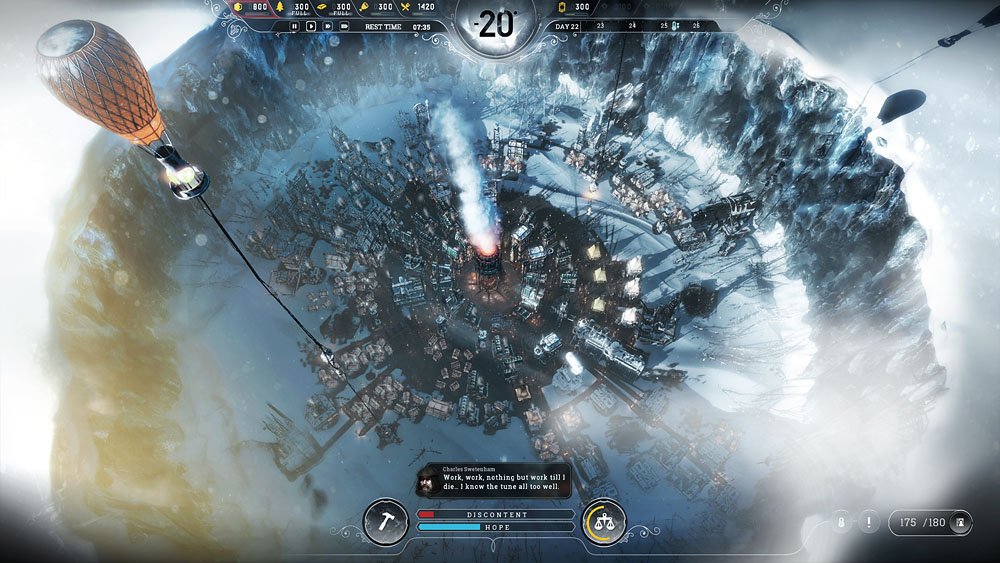 Frostpunk, 11 Bit Studios, photo: press materials
Frostpunk, 11 Bit Studios, photo: press materials The previous game from the 11 Bit Studios, This War of Mine, was about extreme experiences of civilians trying to survive during wartime. Their newest game, Frostpunk, also focuses on humanity in a critical situation. The plot is set in a city covered in ice. Its citizens know that their days are numbered, but it makes them want to survive even more. The player is the leader of the city who has to progressively make more and more difficult decisions: who will have to sacrifice their health and life to rescue the city.
This War of Mine quickly became an example of a successful mixture of skilfully constructed gameplay and sensitivity to modern political and social issues. It seems that Frostpunk is another step in the same direction.
We, the Revolution (Polyslash/Klabater)
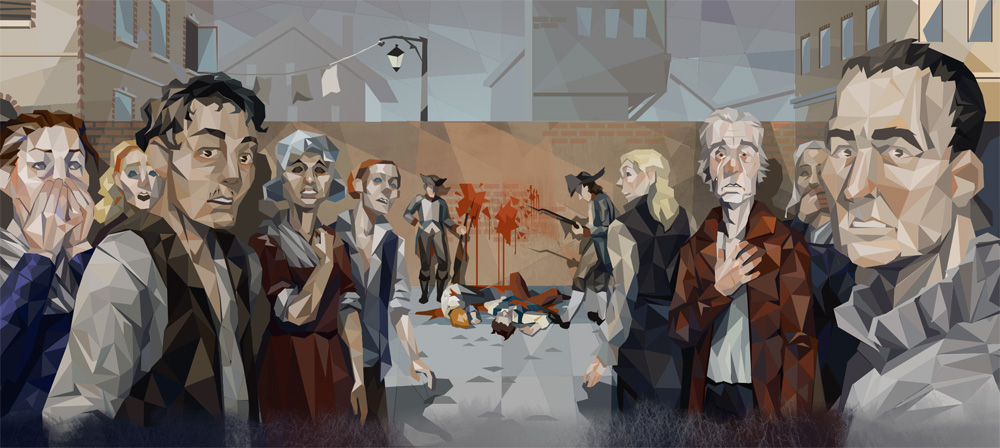 We, the Revolution, Polyslash/Klabater, photo: press materials
We, the Revolution, Polyslash/Klabater, photo: press materialsThe game from the Polyslash Studio has a lot in common with detective games, especially those partially set in a courtroom (such as Ace Attorney). However, the courtroom is just the outer layer of We, the Revolution. The player becomes a judge who solves crimes. He lives during the French revolution when justice wasn't the most important factor in solving legal cases. The judge, while deciding who will go free and who will perish, has to take into account how his decisions will be perceived by the political fractions fighting for power, as well as by the people of Paris. He also has to bear in mind that the machinery of the revolution that has been set in motion can crush him too.
Indygo (Pigmentum Game Studio/Fat Dog Games)
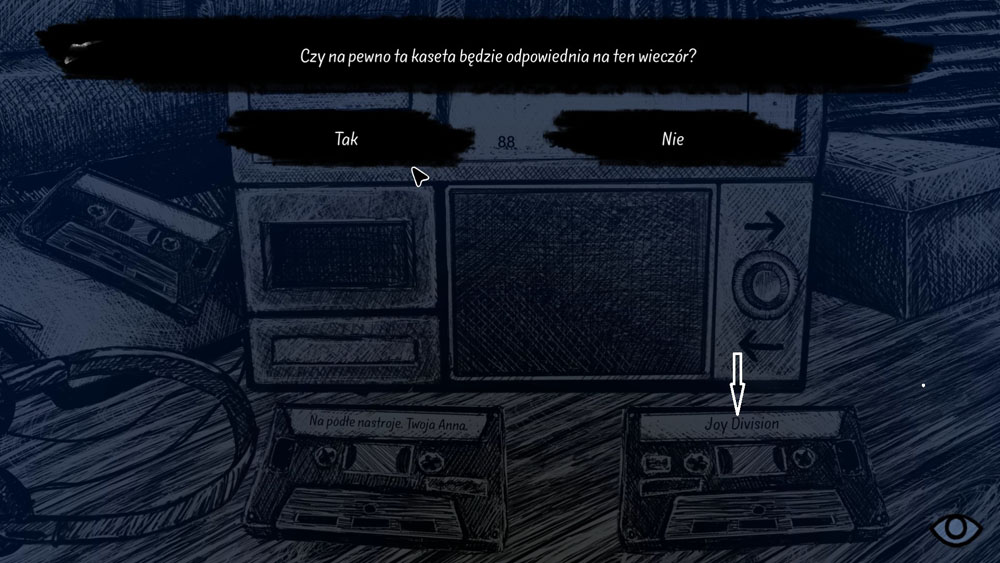 Indygo, Pigmentum Game Studio/Fat Dog Games, photo: press materials
Indygo, Pigmentum Game Studio/Fat Dog Games, photo: press materialsIndygo tells a story of a depressed painter. It's an intimate game – in a very literal sense. Its plot takes place in just one room, where the main character hides from the world. The creators' main goal is to raise awareness of depression and possible ways of dealing with it. The modest but stylish audio-visual setting contains a story which avoids the temptation to use the illness as a controversial topic but allows for the better understanding of the illness and those suffering from depression.
Seven: The Days Long Gone (Fool’s Theory/IMGN.PRO)
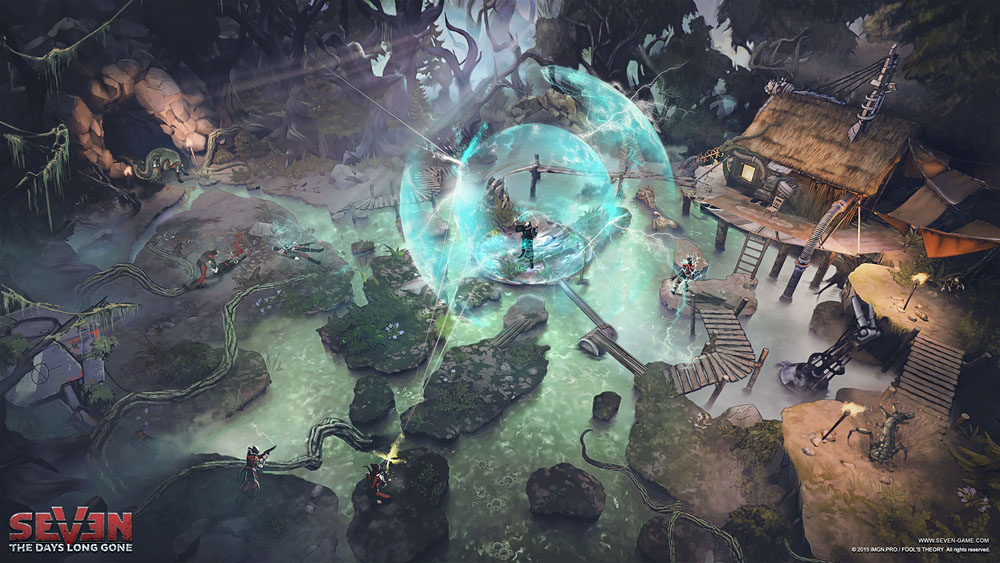 Seven: The Days Long Gone, Fool’s Theory/IMGN.PRO, photo: press materials
Seven: The Days Long Gone, Fool’s Theory/IMGN.PRO, photo: press materialsIt's one of the most anticipated Polish game premieres. It mixes science fiction with references to a medieval story of a thief stranded on a deserted island. The game surprises the players with a multitude of sceneries, encountered characters and available tactics. The world of Seven: The Days Long Gone is both beautiful and strange: from deteriorating wooden slums to illuminated futuristic buildings. On its roads and wastelands, you can meet members of various socials classes and species. The main character can survive by using persuasion, hiding in the shadows or using weapons when someone spots him. He can move not only horizontally but also vertically – the world is full of cliffs and high buildings he can climb. Everything is set in great comic book-style graphics. Seven is likely to become the biggest Polish hit of 2017.
My Memory of Us (Juggler Games/IMGN.PRO)
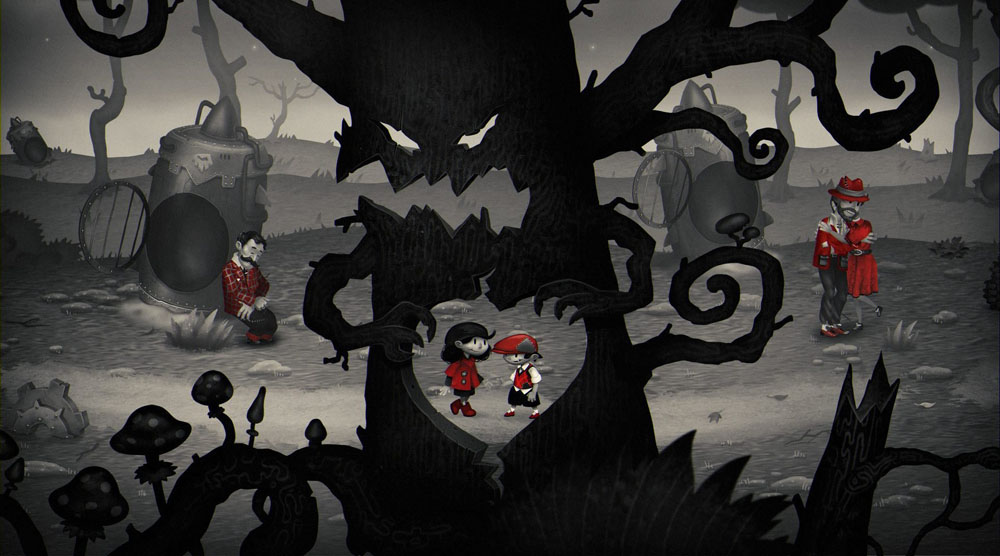 My Memory of Us, Juggler Games/IMGN.PRO, photo: press materials
My Memory of Us, Juggler Games/IMGN.PRO, photo: press materialsAt first sight, My Memory of Us tells a purely fictional story: the main characters shown, drawn in cartoon-style graphics, are two children living in a city raided by a group of robots who kidnap people. However, one can quickly notice that the story of childhood friendship incorporates historical references. A depiction of the Holocaust as a disturbing fairy tale can be a risky undertaking, but the creators are aware of that. Although the world they've created is largely based on (often familial) memories of World War II, the references are usually indirect. The game prefers metaphor, visual association and showing universal situations that can be related to the Holocaust.
Sand is the Soul (MGP Studios/Fat Dog Games)
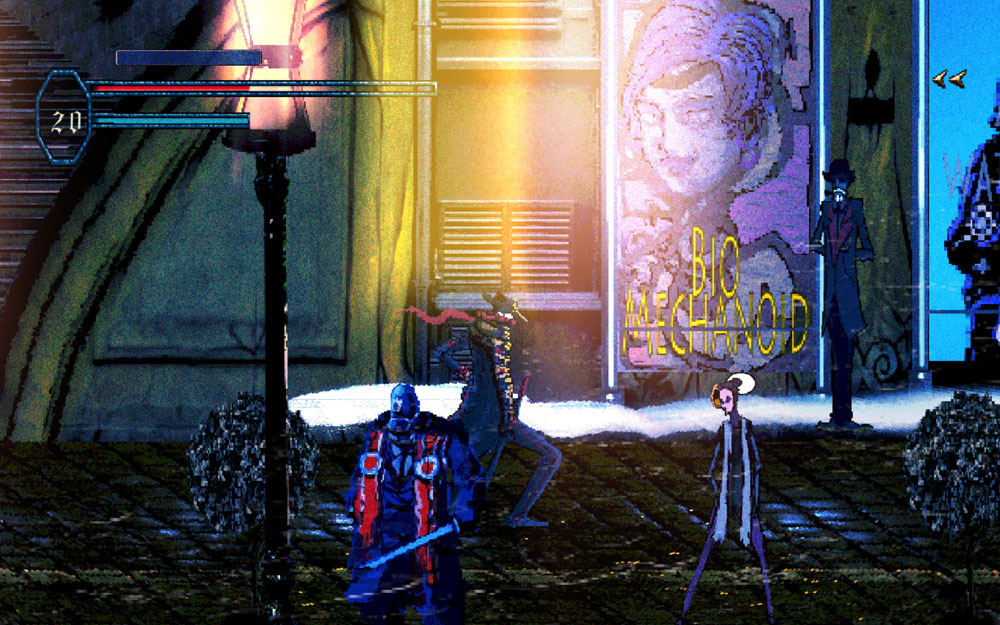 Sand is the Soul, MGP Studios/Fat Dog Games, photo: press materials
Sand is the Soul, MGP Studios/Fat Dog Games, photo: press materialsThe mechanics of Sand is the Soul are at first sight similar to classic ‘beat ‘em up’ games such as Double Dragon or Golden Axe, where a warrior marching forward had to defeat hordes of enemies. However, first impressions can be misleading – although there are many elements of a fighting game, it's far more ambitious: it has an elaborate plot, a huge city and its surroundings to explore and the consequences of conscious and unconscious decisions which can lead to one of 22 (!) possible endings. We should add that MGP Studio consists of just one designer supported by two programmers. The majority of such ambitious projects from small teams end at the stage of conceptual work, despite these odds, Sand Is the Soul is going to premiere soon. If everything goes as planned, it will be one of the best examples of how much can be achieved when the creators really love their project.
Karambola (Holy Pangolin)
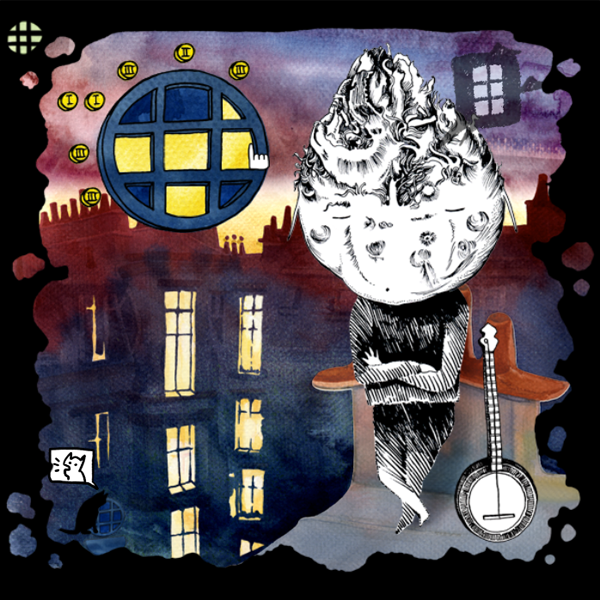 Karambola, Holy Pangolin, photo: press materials
Karambola, Holy Pangolin, photo: press materialsOne can never get tired of projects like this one. Karambola is a small but impressive piece of work by talented Polish illustrator Agata Nawrot. The atmosphere of the game to some extent resembles games from a famous Czech studio Amanita Design – always visually refined, surreal and humorous. Even the characters of the game are unusual: they have human bodies but exotic fruit and vegetables instead of heads.
The player's task is to protect their town from gloomy thoughts – dark birds circling above the artichokes, starfruits and summer squashes who cry melancholic tears. Karambola's biggest asset is not the complicated riddles but its specific atmosphere, mixing absurd humour with authentic melancholy. The graphics have an artistic panache of which most mainstream games can be jealous. Of course, Karambola is just a cute little game, but perhaps also a promise for an even more interesting production from Agata Nawrot in the future.
Originally written in Polish, translated by KF, Nov 2017